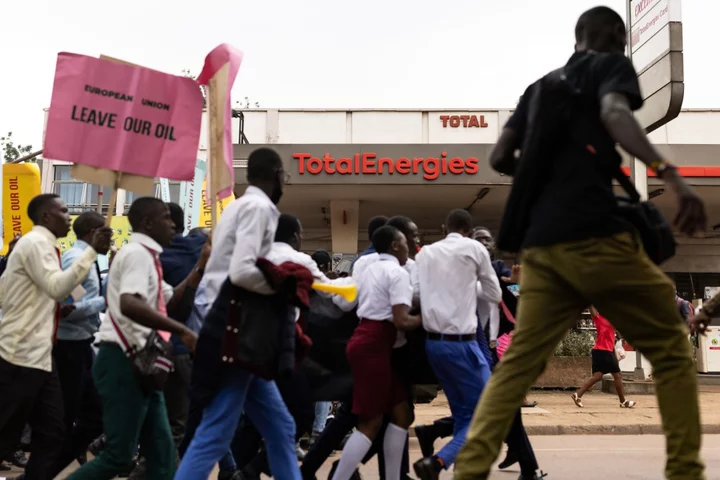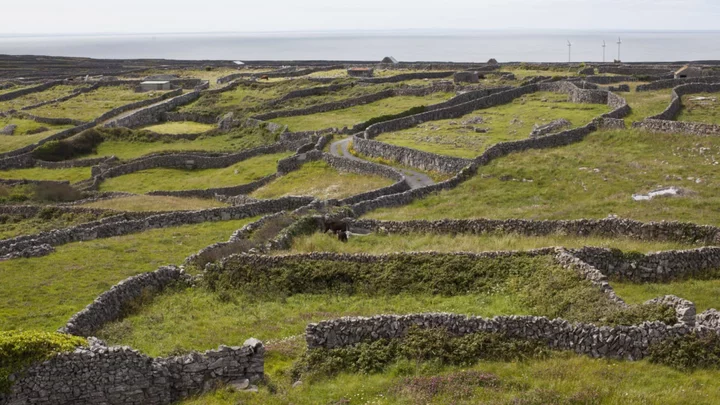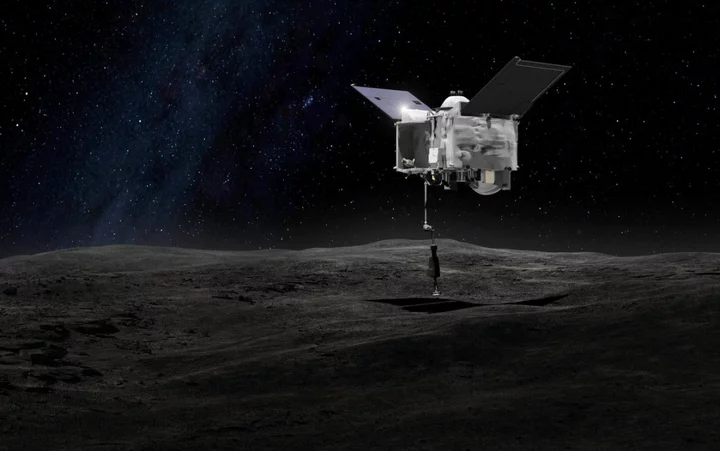A group of nonprofits is pushing Barclays Plc to retract an analyst research note they claim amounts to a “whitewash” of the environmental and social impact of an African oil pipeline being developed by companies including TotalEnergies SE.More than 40 environmental and social justice groups wrote last month to the bank’s chief executive officer, C.S. Venkatakrishnan, asking him to rescind a note on the East Africa Crude Oil Pipeline project that they said was “highly unprofessional, biased and damaging to Barclays’ reputation.” In a March 20 report, six Barclays energy analysts, led by Lydia Rainforth, said that while legitimate environmental and human rights concerns have been raised about the pipeline, these were mostly exaggerated or misguided.
“Asking for a retraction is certainly an unusual tactic and one I have never seen deployed before, but I have to question if it’s the best approach,” said Alex Bibani, a senior portfolio manager at Allianz Global Investors in London. “Research like this highlights important problems, gives them greater prominence and allows investors to engage with the companies building the pipeline.”
EACOP is expected to carry oil 900 miles from the fields of western Uganda to the coast of Tanzania. Environmentalists claim the pipeline will endanger wildlife, displace local communities and increase carbon emissions. A campaign has persuaded numerous banks and insurers to withhold support for the pipeline.
Barclays isn’t among the banks that are financing the $5 billion project. But it does have a research arm with analysts who write reports on TotalEnergies, the main developer of EACOP. After a recent trip to Uganda, a team of those analysts said they were “reassured” the EACOP project won’t be as damaging as critics maintain.
“The social and environmental complexities involved in this project are significant, but based on observations during our visit, we find TotalEnergies to be implementing its plans according to the highest standards set by regulators and stakeholders,” the analysts wrote. “We therefore believe that many of the voiced concerns either overstate the impact, neglect to take into account the mediations put in place, or are misplaced or based on inaccurate information.”
A spokeswoman for Barclays said “the views expressed in any Barclays Research publication are solely and exclusively those of the authoring analysts and don’t reflect the view of the Barclays Group.” She declined to comment on whether the report would be retracted.
Rainforth, the report’s lead analyst, also declined to comment. Rainforth also covers BP Plc and Shell Plc. She has an “overweight” rating for TotalEnergies and expects the stock to outperform, according to data compiled by Bloomberg.
In a 34-page write-up of their Uganda trip, the analysts said the travel and itinerary had been arranged independently, and that they were seeking to evaluate the situation on the ground and look into reports of human rights and environmental violations. They met with NGOs, the Uganda National Oil Company, TotalEnergies’ project management team, people directly affected by the pipeline and resettlement specialists.
In the report, the Barclays team explained why they felt the environmental damage may not be as bad as feared. For example, the wetlands — dug up to lay pipes — would grow back quickly, they said. TotalEnergies also had committed to following international biodiversity conservation standards to minimize and avoid damage and compensate for any impacts to critical habitats, the analysts said. And the French company is planning to make the project “biodiversity-positive” by restoring 1,000 hectares of forest for chimpanzee habitats and the wetlands in the Victoria Nile delta, they said.
Rainforth and her team also said that reports suggesting 100,000 people would be negatively impacted by the project obscured the true picture.
While that number of people do own assets such as farms or grazing land along the EACOP route, the “vast majority” of them will be able to use their property after the project is completed since 80% of the pipeline will be under ground, according to the Barclays report. The number of people who will have to relocate as a result of a land acquisition program for the pipeline and associated oil field development will be far lower than 100,000 and closer to 19,000, the analysts said.
The nonprofits that wrote to Barclays’ CEO are based mostly in Uganda, Tanzania and the Democratic Republic of the Congo. They take a different view. In their letter, they suggested that oil analysts are ill-suited to providing expertise on social or environmental matters. They said the Barclays report merely parroted many of TotalEnergies’ talking points.The report “is neither an independent nor a serious investigation of the facts,” the nonprofits wrote in their letter.Banks' role in financing carbon-polluting projects is an increasing area of focus for climate activists. The campaign against EACOP has so far resulted in about 25 major banks, including most recently Standard Chartered Plc, which have said they won’t support the project.









